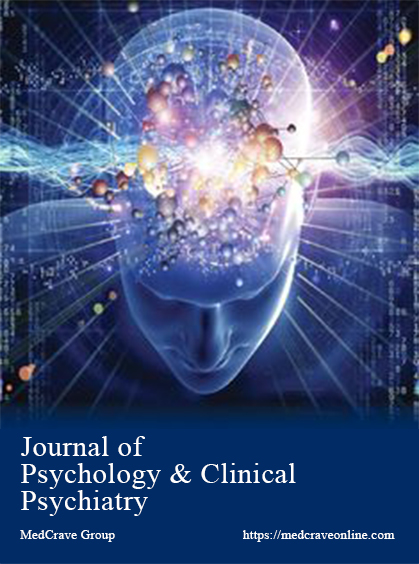The role of emotion regulation in the relation between anxiety and life satisfaction among Saudi children and adolescents
The role of emotion regulation in the relation between anxiety and life satisfaction among Saudi children and adolescents
Author(s): Sawzan Sadaqa Basyoun, Mogeda El Sayed El KeshkySubject(s): Social psychology and group interaction, Cognitive Psychology, Developmental Psychology, Behaviorism
Published by: MedCrave Group Kft.
Keywords: emotional regulation; anxiety; life satisfaction; mediation; moderation; children; adolescents;
Summary/Abstract: Background: Anxiety has a negative effect on life satisfaction, but this effect can be moderated and/or mediated by emotion regulation. We assessed these relationships to plan strategies for a good life. The objectives were to: determine the relations among emotion regulation, anxiety, and life satisfaction, estimate the role of emotion regulation (mediation and moderation) in the relation between anxiety and life satisfaction, and evaluate the differences in emotion regulation and its subscale, anxiety and its subscale and life satisfaction across gender and age. Method: A cross-sectional sample of 1379 participants (952 female), with an age range of 9-19years (M=16.2; SD=2.15). The administered instruments were the Satisfaction with Life Scale, Screen for Child Anxiety Related Emotional Disorders, and the Emotion Regulation Questionnaire. Reliability analysis, descriptive analysis, correlation analysis, moderation and mediation analyses and two-way multivariate ANOVA were applied. Results: Emotion regulation and life satisfaction were associated positively with each other but negatively with anxiety related emotional disorders. There was an interaction among emotion regulation, anxiety related emotional disorders, and life satisfaction with age and gender. The emotion regulation subscales, cognitive reappraisal and expressive suppression, mediated and moderated (respectively) the relation between anxiety related emotional disorders and life satisfaction. Conclusions: This work contributes to the knowledge of the variables involved in people’s life satisfaction. Specifically, knowing the moderator and mediator roles of emotion regulation in the relationship between people’s life satisfaction and anxiety could contribute to the design of programs for the promotion of mental health and the prevention of mental health problems in the population.
Journal: Journal of Psychology & Clinical Psychiatry
- Issue Year: 12/2021
- Issue No: 2
- Page Range: 21-30
- Page Count: 10
- Language: English

